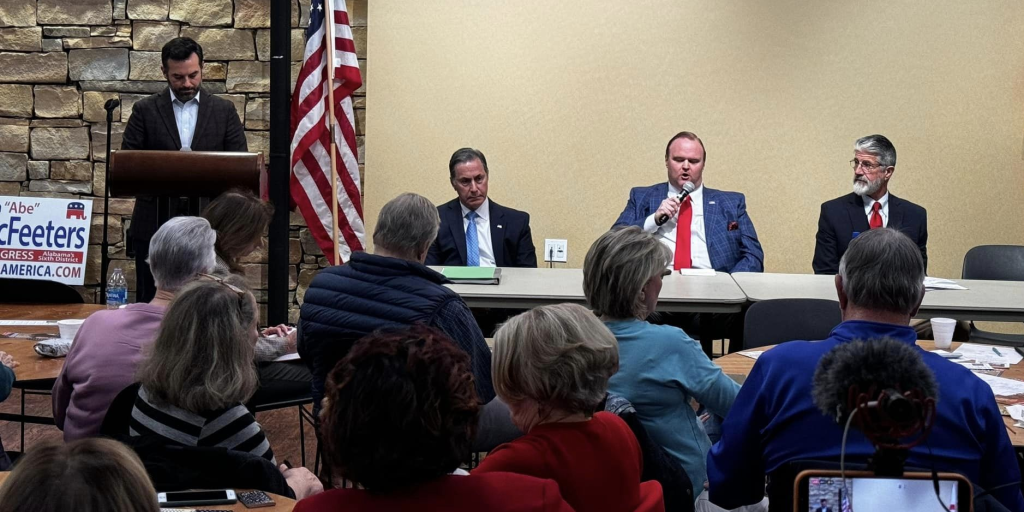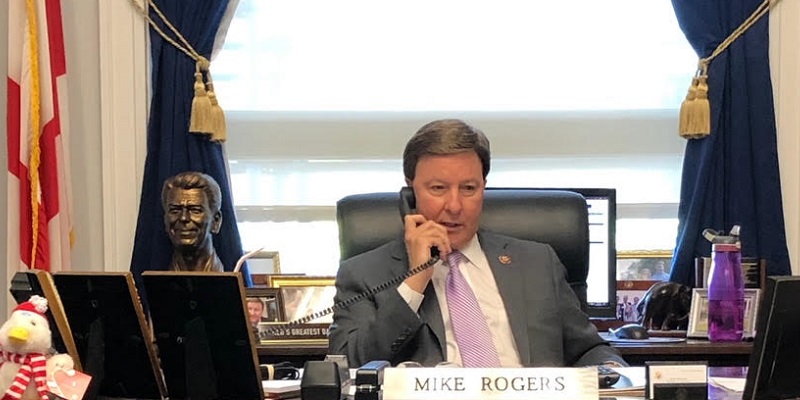Democrats in the U.S. House of Representatives on Friday passed H.R. 2500, the Fiscal Year 2020 National Defense Authorization Act (NDAA), which has been criticized as “hyper-partisan.”
The NDAA passed the House 220-197, with Democrats voting in favor of the legislation 220-8 while Republicans unanimously voted against. Congressman Bradley Byrne (AL-01), in a statement, even said the measure “would better be called the Non-Defense Authorization Act.”
While President Donald Trump’s administration and other congressional Republicans have also slammed the House version of the critical legislation as being detrimental to national security, there is one glaring provision that especially hurts Alabama’s interests.
As previously reported by Yellowhammer News, the now House-passed version of the NDAA contains a measure inserted into the legislation by a powerful Democrat, Rep. Adam Smith (D-WA), that would likely have a negative impact on Alabama’s aerospace industry, which has been heavily involved in the Air Force’s national security space launch program.
NASA’s Marshall Space Flight Center, Redstone Arsenal and numerous manufacturers and suppliers located in the Yellowhammer State have taken on an elevated role in the effort.
An industry source has previously noted that maintaining the planned path helps solidify the state’s position even further because of the amount of investments that members of its own industry have already made in the program.
The program, called Launch Services Agreement (LSA), awarded three companies the opportunity to develop launch vehicles for use in national security space missions under public-private partnerships.
News of the award to carry national security payloads brought praise from Sen. Richard Shelby (R-AL) and others.
The companies entered into LSA with the understanding that certain performance requirements were necessary to participate in a second phase of the program where the Air Force would only call on the top two providers.
As a result, companies became incentivized to make substantial investments for the opportunity to participate in the second phase.
However, Smith’s language contained in the House-passed NDAA now limits the number of launches under the original LSA to 29; attempts to award $500 million to a company that did not make the first cut under the LSA; and mandates that the Air Force must report back to Congress before it awards a contract in 2020.
While Congressman Mo Brooks (AL-05) in a release Friday hailed the inclusion of a provision technically keeping LSA on schedule, the requirement of getting congressional reapproval next year would, unfortunately, lead to increased chances that more roadblocks would pop up that could ultimately end up delaying things.
Yellowhammer News previously received a copy of an Air Force memo outlining the reasons why it opposes Smith’s changes to the process. Its chief concerns are that the changes would not reward competition and would fail to meet national security needs.
This was also reflected in the Statement of Administration policy, released by the Trump administration.
Key passage from the Statement of Administration policy as follows:
National Security Space Launch Program (Section 1601). The Administration strongly objects to this provision as it would increase mission risk for the Nation’s national security satellites. After careful and considered study, DOD determined that a contract for national security space launch requirements over the course of five years would optimize warfighter flexibility, minimizes mission risk, and provides exceptional value to the taxpayer. It would also align with the conclusion of the current generation of several satellite architectures. Confining Phase 2 to fewer missions would increase per-launch cost while simultaneously introducing risk and costs for some intelligence payloads. Finally, notifying Congress prior to a contract would be a departure from long-standing tradition and might put DOD at a greater risk of a protest.
Speaking on the House-passed NDAA, Byrne added, “[E]xtremist Democrat provisions will directly harm Alabama’s strong national defense footprint.”
The Senate, on an overwhelmingly bipartisan basis, already passed its own version of the NDAA. The next step will be for a conference committee comprised of members of both chambers to meet and reconcile the two significantly different versions.
Brooks commented, “It is unfortunate Socialist Democrats refused to work in a bipartisan manner— as Republicans did when we held the House majority— to craft a bill that both Republicans and Democrats could support. After voting ‘No’ on the FY20 NDAA in the Armed Services Committee, I held out hope the bill would be improved on the House floor. Unfortunately, the bill was made even worse by radical Democrat amendments that were accepted and pro-defense Republican Amendments that were rejected by the majority party.”
“Maybe the eventual Senate-House compromise bill will be worthy of a ‘Yes’ vote,” he continued. “Such is life in a House of Representatives governed by radical Socialist Democrats, many of whom consider Nancy Pelosi ‘too conservative’ to be House Speaker.”
Sean Ross is a staff writer for Yellowhammer News. You can follow him on Twitter @sean_yhn













